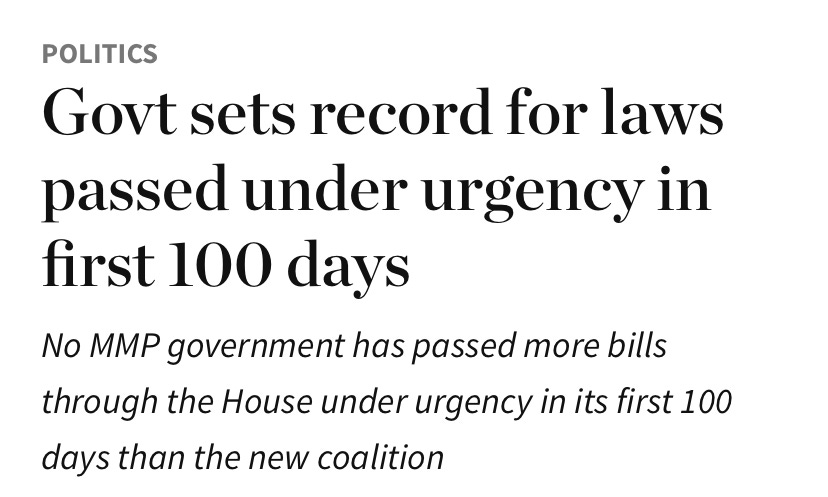Cassandra
Remember how in 2016 vulnerable and marginalised communities, activists, and history experts all spoke out loudly to warn about Trump, and were consistently, actively dismissed by pundits who “knew better”?
Perhaps you don’t. It’s only now, almost a decade later in 2024 that the vision, expertise, lived experience and clarion warning from those people has started to be validated, as the US contemplates the prospect of their democracy falling.
This week I have started reading Hiding in Plain Sight by Sarah Kendzior, and have been immediately struck and disturbed by its consistent relevance to the erosion currently happening in New Zealand.
Like this bit:
“They will rewrite the law so that they are no longer breaking it.”
Full quote:
“Once an autocrat gets into office, it is very hard to get them out. They will disregard term limits, they will purge the agencies that enforce accountability, they will rewrite the law so that they are no longer breaking it.”
“They will take your money, they will steal your freedom, and if they are clever, they will eliminate any structural protections you had before the majority realizes the extent of the damage.
That is why it is important to act early, particularly when that autocrat is backed by a crime syndicate that transcends state borders in its pursuit of wealth and power.”
A year ago, the suggestion that our public health system be privatised would have been dismissed.
This is how erosion of norms works.
Dismantling bit by bit, increasing fear, uncertainty, chaos until a thing that gains a few wealth and power is positioned as the only possible option - and the only safe harbour.
How many new records were set in the 240 or so days after the first 100 days below?
How many more to come?
It’s important to acknowledge that this is not a one and done term, and that there is a large war chest somewhere with the sole goal of continued and greater power.
It’s important to recognise that we aren’t in Kansas anymore - and that New Zealand’s next election will be the difference between a future that looks brighter for many or one that looks bright for a very select few.
It’s important to acknowledge that shame is not a motivating factor to stop the latter.
There’s already a long list that we have normalised the loss of - and a long list to lose.
I think it’s important to ask politicians what they value in this moment, right now - specifically, in policy detail.
I think it’s important to hold up those words, and see how they change in another 700 or so days.
I think it’s important to believe behaviour and action over words.
I think it’s important to note that the 2016 dismissal in the US of experts, of vulnerable and marginalised communities, of advocates and allies is a comparable point on our own journey in 2024.
History echoes - and the things we lose remain lost unless we refuse to hold them tight.
I read a great essay around the time Barack Obama was elected which talked about policy gatekeepers saying “it’s not the right time” - for change/progressive policy/new ways of thinking.
The writer made the excellent point that the unsaid part of that sentence is usually “for me.”
It’s important to consider that by the time we go to vote again, the things we once would have expected as policy standards will be seen as too progressive, too radical, too hard.
It feels shaky because it is deliberately shaky.
But there’s so much power in recognising the playbook; power in calling it out.
There’s power in actively listening to those on the frontlines of impact who are blessed and cursed with seeing the future - those whose lived and learned expertise make them our Cassandras, unless we act.
There’s power in understanding how much there is to lose, and, with the capacity you have, helping to hold the ground steady.
“Despair demands less of us, it’s more predictable, and in a sad way safer. Authentic hope requires clarity—seeing the troubles in this world—and imagination, seeing what might lie beyond these situations that are perhaps not inevitable and immutable.”
- Rebecca Solnit
*In the mythology and religion of Ancient Greece, Cassandra was a prophetess whose fate was to foretell future events correctly but never to be heeded or believed.

